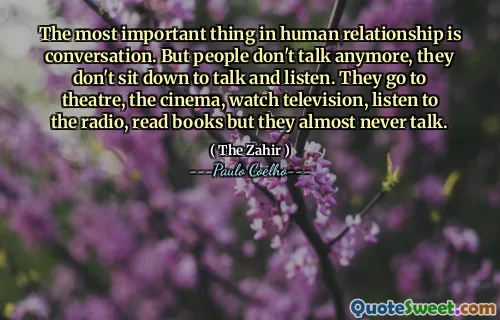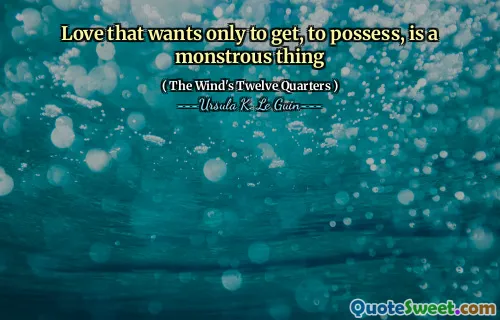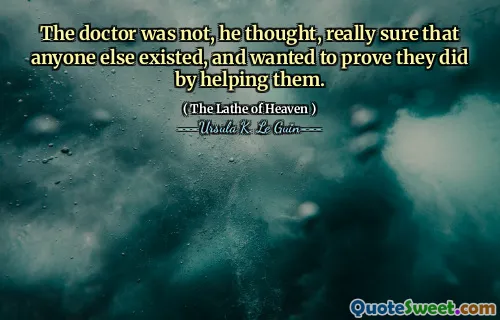
You're always with me. But that must also be some version of you that I made up inside my head
This quote highlights the complex interplay between presence and perception in human relationships. It speaks to the idea that even when someone feels omnipresent in our thoughts or memories, our experience of them is inevitably filtered through our own imagination. The notion that "some version" of a person exists only within our head underscores how our understanding of others is often subjective, constructed from our feelings, desires, and interpretations rather than objective reality. This can lead to both comfort and confusion — comfort in feeling close to someone despite physical absence, confusion in reconciling that internal image with the person’s true nature.
It prompts reflection on the boundary between reality and fantasy in emotional connections. How much of what we cherish about others is really who they are, and how much is a projection influenced by our own needs? In relationships, this can lead to challenges when expectations based on these internal versions collide with actual behavior. The quote also touches on the loneliness inherent in human consciousness, where even when we feel accompanied by the presence of another, that presence may be more imagined than real.
In the broader context of the narrative ("Vagabond, Volume 25"), a work deeply attuned to introspection and the exploration of identity, this line beautifully captures the internal struggle to reconcile inner perceptions with external realities, highlighting the nuanced emotional landscape one navigates when interpreting their connections with others. It’s a poignant reminder of the human tendency to cling to personal versions of people as a way to soothe the ache of separation, loss, or incompleteness.






